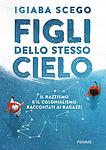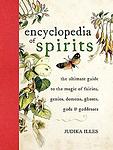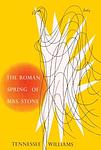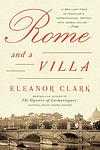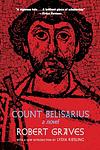The Greatest "Rome" Books of All Time
Click to learn how this list is calculated.
This list represents a comprehensive and trusted collection of the greatest books. Developed through a specialized algorithm, it brings together 300 'best of' book lists to form a definitive guide to the world's most acclaimed books. For those interested in how these books are chosen, additional details can be found on the rankings page.
Genres
The category of "Rome" in books refers to literature that is set in ancient Rome or focuses on the history, culture, and society of the Roman Empire. These books may include historical fiction, biographies, memoirs, and academic works that explore the political, social, and economic aspects of Rome. The genre may also encompass stories of gladiators, emperors, soldiers, and other figures from Roman mythology and history. Overall, the category of "Rome" offers readers a glimpse into one of the most influential civilizations in human history.
Countries
Date Range
Reading Statistics
Click the button below to see how many of these books you've read!
Download
If you're interested in downloading this list as a CSV file for use in a spreadsheet application, you can easily do so by clicking the button below. Please note that to ensure a manageable file size and faster download, the CSV will include details for only the first 500 books.
Download-
26. A Violent Life by Pier Paolo Pasolini
"A Violent Life" explores the journey of a young man from the slums of Rome who becomes entangled in the world of crime. As he navigates through this violent and chaotic life, he is confronted with the harsh realities of poverty, injustice, and the struggle for survival. The narrative provides a stark and unflinching examination of the underbelly of Italian society, revealing the deep-seated corruption and systemic inequality that pervades it. The protagonist's life is a testament to the destructive cycle of violence and despair that traps the marginalized and underprivileged.
-
27. Histories by Cornelius Tacitus
"Histories" is a comprehensive account of the Roman Empire from 69-96 AD, a period marked by significant political turmoil. It provides an in-depth look at the reigns of four emperors: Galba, Otho, Vitellius, and Vespasian, along with the social and political upheavals of the time. The narrative also covers the Jewish rebellion and the burning of the Jerusalem Temple, offering a rich historical context of the period. Despite some gaps in the record, it remains a crucial primary source for understanding this era of Roman history.
-
28. Galileo by Bertolt Brecht
This play delves into the life of the renowned Italian scientist, Galileo Galilei, who challenged the church's belief in a geocentric universe. It explores his struggles against the Catholic Church, his recantation, and the consequences of his actions on his life and those around him. The narrative also examines the conflict between science and religion, the ethics of scientific discovery, and the price of truth.
-
29. The Ragazzi by Pier Paolo Pasolini
The book is a poignant exploration of post-war Italian youth, delving into the lives of a group of boys from the slums of Rome as they navigate the challenges of poverty, social exclusion, and the struggle to find their identities. Set against the backdrop of a country grappling with the aftermath of fascism and the rise of consumerism, the narrative portrays the harsh realities of street life, where the ragazzi, or boys, engage in petty crime, prostitution, and moments of tenderness, all while dreaming of escape and a better future. The novel is a gritty, raw depiction of the loss of innocence and the corrosive effects of societal neglect on the young generation.
-
30. Augustus by John Williams
"Augustus" is a historical novel that provides a comprehensive and vivid account of the life of Rome's first emperor, from his early years as a young and inexperienced politician, to his rise to power and his reign, which brought about the Pax Romana. The book presents a complex and humanized portrayal of Augustus, exploring his relationships, his philosophical reflections, his political strategies, and the challenges he faced in his personal and public life. The narrative is composed of fictional letters, memoirs, and other documents, providing a multi-faceted perspective on this pivotal figure and his era.
-
31. Enneads by Plotinus
"Enneads" is a collection of 54 philosophical treatises by Plotinus, a prominent philosopher of the ancient world. The work is a cornerstone of Neoplatonism, a school of Hellenistic philosophy that sought to reconcile Greek philosophy with religious mysticism. The book covers a wide range of topics, including the nature of reality, the self, the universe, and the divine. The author argues for the existence of a transcendent One from which all existence emanates, and that the goal of human life is to strive for unity with this divine principle.
-
32. Germania by Cornelius Tacitus
"Germania" is a historical and ethnographic work that provides a detailed description of the lands, customs, and tribes of the Germanic people in the first century AD. The author, a Roman historian and senator, offers a comprehensive account of the geography, anthropology, social institutions, and military practices of the Germanic tribes, often comparing their culture and values to those of the Romans. The work is considered a valuable source of information about the ancient Germanic tribes, despite its possible biases and inaccuracies.
-
33. Titi Livi Ab urbe condita libri by Livy
This historical work offers a comprehensive narrative of the history of Rome, from its mythical origins to the reign of the Roman Emperor Augustus. The author chronicles the major political, military, and social events of the Roman Republic, including the founding of the city, the establishment of the Republic, the Punic Wars, and the rise of Julius Caesar. The book is a significant source of information about the early history of Rome and is often considered one of the most important works of Roman history.
-
34. Disobedience by Alberto Moravia
"Disobedience" is a novel about a young man, Luca, who refuses to serve in the Italian army during World War II. The narrative explores his experiences as he hides from the authorities, the moral dilemmas he faces, his sexual awakening, and his relationship with his mother. His refusal to obey the military draft serves as a symbol of his rebellion against societal norms and expectations, as well as his search for personal identity and freedom.
-
35. Death in Rome by Wolfgang Koeppen
"Death in Rome" is a post-World War II novel that explores the lives of a German family, their friends, and associates during a reunion in Rome. Each character is representative of a different aspect of German society, and their interactions and experiences in the city serve as a commentary on the nation's struggle to come to terms with its recent past. The book also explores the themes of guilt, denial, and the lingering effects of war.
-
36. Il Piacere by Gabriele D'Annunzio
"Il Piacere" is a novel set in late 19th century Italy that explores the life of a wealthy and hedonistic aristocrat. The protagonist is caught in a constant pursuit of pleasure, indulging in luxurious parties, love affairs, and the arts, while struggling with ennui and a sense of emptiness. His life takes a turn when he falls in love with a woman who challenges his views and lifestyle. The novel delves into themes of decadence, hedonism, and the search for meaning in life.
-
37. Angels & Demons by Dan Brown
In this fast-paced thriller, a renowned symbologist is called to the Swiss research facility CERN to investigate a mysterious symbol seared into the chest of a murdered physicist. His investigation leads him to the Vatican City, where he uncovers the resurgence of an ancient secret brotherhood known as the Illuminati. As a conclave is underway to elect a new Pope, the symbologist and a gifted Italian scientist race against time to prevent a powerful time bomb from destroying the Vatican. They embark on a frantic hunt through sealed crypts, dangerous catacombs, and deserted cathedrals, following a 400-year-old trail of ancient symbols that snake across Rome to the long-forgotten Illuminati lair.
-
38. Poetry by Quintus Lutatius Catulus
This book is a collection of ancient Roman poetry by a renowned statesman and poet. The poems reflect the author's experiences, thoughts, and feelings about life, love, politics, and society during the Roman Republic era. The author's eloquent and vivid writing style, combined with his astute observations and insights, make this book a valuable resource for understanding Roman culture and history.
-
39. Attis And Other Poems by Catullus
"Attis and Other Poems" is a collection of lyrical works that delve into themes of love, desire, and personal anguish. The poems are characterized by their emotional intensity and vivid imagery, often reflecting the poet's own tumultuous love affairs and inner turmoil. The titular poem, "Attis," stands out with its mythological narrative and exploration of themes such as identity and transformation. Throughout the collection, the poet's mastery of language and form is evident, as he skillfully weaves together personal experiences with broader reflections on human nature and the complexities of the human heart.
-
40. The Roman Spring Of Mrs. Stone by Tennessee Williams
The novel explores the emotional and psychological journey of a wealthy and recently widowed American actress who has retired to Rome. As she grapples with the fading allure of her beauty and career, she becomes involved with a young Italian man, who is revealed to be a gigolo. Their complex relationship is further complicated by the manipulative Contessa, who facilitates these liaisons. The story delves into themes of aging, desire, and the transactional nature of relationships, set against the backdrop of the evocative and decaying grandeur of post-war Rome.
-
41. Catiline Orations by Marcus Tullius Cicero
"Catiline Orations" is a series of speeches given by a renowned Roman statesman, which were aimed at exposing and condemning the conspiracy led by Lucius Sergius Catilina. The speeches, delivered in the Roman Senate, are a masterful display of oratory skills and political acumen, as the statesman successfully manages to turn the Senate against Catiline, ultimately leading to his downfall. The book offers an in-depth study of these speeches, providing valuable insights into Roman politics, rhetoric, and the art of persuasion.
-
42. Natural History by Pliny (the Elder)
"Natural History" is an extensive work of literature that provides a comprehensive look at the knowledge of the natural world during the Roman era. The book is divided into 37 volumes, each focusing on different aspects such as geography, anthropology, zoology, botany, and mineralogy. The author's curiosity and fascination with the world are evident in his detailed observations and descriptions. The book also includes discussions on art, sculpture, and various other topics, providing a rich and detailed snapshot of the Roman understanding of the world.
-
43. That Awful Mess On Via Merulana by Carlo Emilio Gadda
This novel is a complex and richly detailed exploration of a crime in 1920s Rome, where an investigation into a theft and a brutal murder in an apartment building on Via Merulana becomes a sprawling narrative that delves into the social, political, and cultural fabric of Italy. The detective in charge of the case navigates through a maze of clues, red herrings, and eccentric characters, revealing not just the underbelly of Roman society but also the inherent chaos and absurdity of life. The narrative is characterized by its linguistic inventiveness, with a mix of literary Italian, Roman dialect, and technical jargon, making it a challenging yet rewarding read that transcends the boundaries of the detective genre to offer a profound commentary on the human condition.
-
44. Rome And A Villa by Eleanor Clark
This book is a rich and evocative travel memoir that takes the reader on a journey through the timeless beauty and layered history of Rome and its surroundings. The author, with a keen eye for detail and a deep appreciation for art and architecture, shares her experiences and observations as she explores the Eternal City and resides in an ancient villa. Through her lyrical prose, the narrative delves into the intermingling of past and present, revealing the city's enduring allure and the author's personal reflections on the cultural and historical tapestry that defines Rome.
-
45. The Papess Joanne by Emmanuel Rhoides
The book is a historical novel that delves into the legend of Pope Joan, a woman who, according to the story, disguised herself as a man and rose through the ranks of the Catholic Church to become Pope in the 9th century. The narrative critically examines the socio-political and religious dynamics of the time, blending historical facts with fiction to explore themes of gender, power, and the construction of history. Through its controversial protagonist and detailed portrayal of medieval Europe, the novel challenges the traditional narratives of history and the church, offering readers a provocative and thought-provoking tale that questions the very foundation of widely accepted truths.
-
46. The Marble Faun by Nathaniel Hawthorne
The novel is a dark romantic tale set in 19th-century Italy that follows the intertwined lives of four characters: the innocent Miriam, the contemplative Kenyon, the charming Donatello, and the mysterious Hilda. As they explore art, love, and the nature of sin, a tragic event involving a mysterious crime at a Roman villa leads to a profound transformation in each of their lives. The story delves into themes of guilt, redemption, and the moral complexities of the human soul, all against the backdrop of Italy's rich cultural heritage and the enigmatic presence of the titular marble faun, a statue that symbolizes the intersection of the divine and the mortal.
-
47. Count Belisarius by Robert Graves
This historical novel brings to life the Byzantine Empire through the eyes of its most celebrated general, Belisarius. Renowned for his loyalty and military genius, the protagonist navigates the treacherous waters of political intrigue, betrayal, and warfare in an attempt to serve his emperor while maintaining his own honor. Set against the backdrop of the 6th century, the narrative not only explores the complexities of Belisarius's military campaigns against the Persians, Vandals, and Goths but also delves into his personal life, highlighting his relationship with his wife Antonina and his dealings with the cunning Empress Theodora. Through its detailed portrayal of ancient warfare, political maneuvering, and the human condition, the novel offers a vivid reimagining of a pivotal period in history.
-
48. The Driver's Seat by Muriel Spark
This novel follows the story of Lise, a woman who, disillusioned with her mundane office job, embarks on a journey to an unnamed Southern European city in search of adventure and ultimately, her own demise. Throughout her meticulously planned trip, she engages in erratic behavior, interacts with various eccentric characters, and deliberately places herself in dangerous situations, all while searching for the "right" man to fulfill her dark desire. The narrative, marked by its unconventional structure and a foreboding sense of inevitability, explores themes of alienation, the search for identity, and the human fascination with death, culminating in a shocking and tragic conclusion.
-
49. Epistles by Horace
"Epistles" is a collection of poetic letters offering insights into the human condition, moral philosophy, and the art of living well. Written in the first century BCE, the work reflects the author's mature thoughts on various subjects, ranging from personal ethics to literary criticism. Through these letters, the poet shares his wisdom with friends and notable contemporaries, employing a conversational tone that blends humor, irony, and sincerity. The epistles serve as a guide to practical wisdom, emphasizing moderation, self-awareness, and the importance of living in harmony with nature and society.
-
50. Satires by Horace
"Satires" is a collection of poetic essays that delve into the follies and vices of Roman society during the first century BCE. Through a series of witty, critical, and often self-deprecating poems, the author explores themes such as greed, corruption, and social ambition, while advocating for a life of moderation and philosophical contentment. Employing a conversational tone and a keen eye for the absurd, the work satirizes the behaviors of both the elite and the common people, offering a timeless reflection on human nature and the pursuit of happiness.
Reading Statistics
Click the button below to see how many of these books you've read!
Download
If you're interested in downloading this list as a CSV file for use in a spreadsheet application, you can easily do so by clicking the button below. Please note that to ensure a manageable file size and faster download, the CSV will include details for only the first 500 books.
Download


